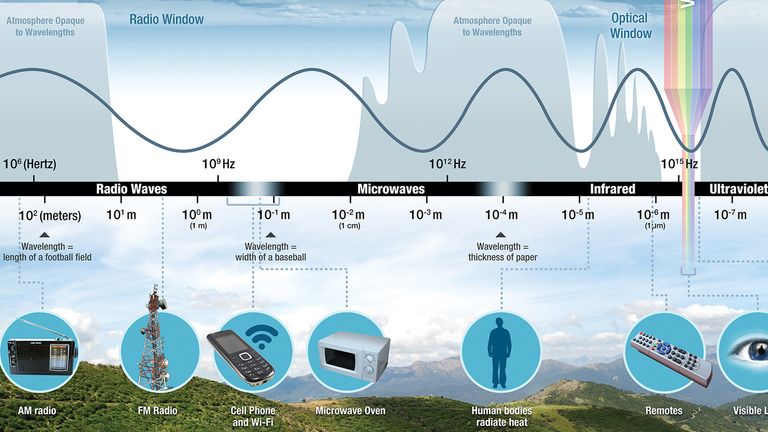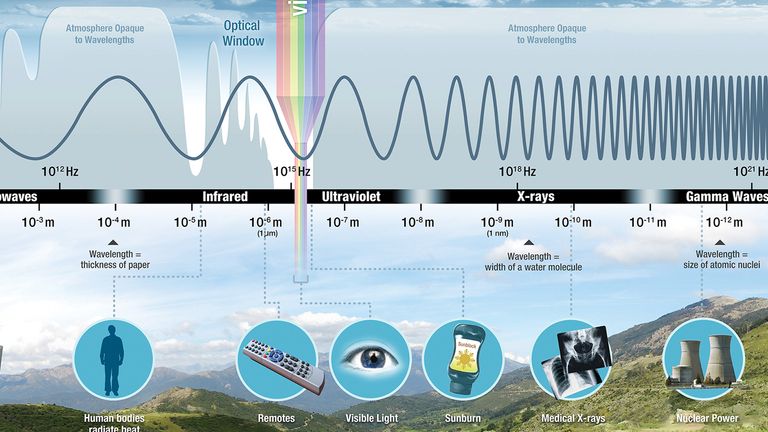The government is adamant that 5G is safe.
It's the same view from every healthcare body, regulator, and otherwise officially accountable organisation that would be liable if 5G was found to cause harm.
But that hasn't convinced everyone.
One parliamentary petition with more than 29,000 signatures has called for an independent inquiry into the health and safety risks of the next generation of mobile technology.
The government turned down the request, noting there are multiple such enquiries constantly taking place in the UK and internationally to monitor whether electromagnetic radiation is harming people.
Advertisement
That won't comfort those who suspect the government of covering up harms, however.
:: Why would 5G cause harm?
To understand whether 5G is dangerous, we really need to have a quick look at what it is and how it works – and to do that we need to understand electromagnetic radiation.
The electromagnetic spectrum is natural. A portion of it will be very familiar to readers in the form of visible light, running from infra-red at the lower frequency end to ultra-violet at the higher end of the visible spectrum.
Electromagnetic radiation is measured in frequency and wavelength. Radiation at lower frequencies and longer wavelengths than visible light is known as the microwave and radiowave part of the spectrum.
This is the section to the left in the graphic above.
Mobile phones communicate with base stations which receive and transmit radio waves in this part of the spectrum.
5G is just a newer part of the spectrum being used – the portion from 22Ghz to 86GHz, which is still way short of the ionising part of the spectrum.
This radiation is known as non-ionising because it is incapable of breaking molecular bonds, knocking off electrons from atoms for instance, and causing the molecule to have an electric charge.

:: So non-ionising radiation is completely safe?
While non-ionising radiation is weaker than the ionising kind, there are suggestions it is still capable of altering the body.
Claims that it could cause cancer in the ways that ionising radiation is known to are based on a misunderstanding of the science.
The NHS stated there has been an enormous amount of scientific research into the health effects of mobile phone use since the 1990s.
None of this research has supported claims that suggest mobile phone radiation is similar to the more dangerous forms on the right-hand side of the diagram.

:: What happens when the body is hit by radio waves?
When radio waves hit the human body they are absorbed by the tissues there and simply turned into energy.
Scientific research has not shown that radio waves alter the molecular structure of any of these tissues.
They are capable of raising the temperature of these cells by 0.2 degrees Celsius, but this is equivalent to a natural increase during exerciRead More – Source
[contf] [contfnew] 
Sky News
[contfnewc] [contfnewc]







